For anyone who is committed to their fitness, creatine can be an amazing tool that helps you power through intense workouts and build more muscle. It is one of the most well-researched supplements on the market and has become a staple for many people, from average gym-goers to Mr. Olympias and professional athletes. That being said, many people wonder: what happens when you stop taking creatine?
If you are in that boat right now, don’t worry, I used to think the same thing. I thought about taking a break from supplements and I wondered if I stopped taking creatine..will my muscles deflate? Will I lose all my progress?
So, let’s break it down so you know exactly what to expect if you stop creatine supplementation.
What Does Creatine Do in Your Body?
Creatine is a compound your body produces naturally. It’s made from amino acids in your liver, kidneys, and pancreas and stored in your muscles as creatine phosphate. Creatine can also be found naturally in foods, mostly in meats like steak.
This stored creatine in your body is a quick-access energy source, which is incredibly helpful during short bursts of intense exercise like sprinting or lifting weights intensely.
When you supplement with creatine—which typically comes in the form of creatine monohydrate—it boosts your body’s creatine stores beyond normal levels. This extra creatine will help your muscles produce more adenosine triphosphate (ATP), which fuels high-intensity exercise and improves athletic performance.
Put simply, taking creatine allows you to train harder, recover faster, and see better results from resistance training. It really is amazing.
The Immediate Effects of Stopping Creatine Supplementation
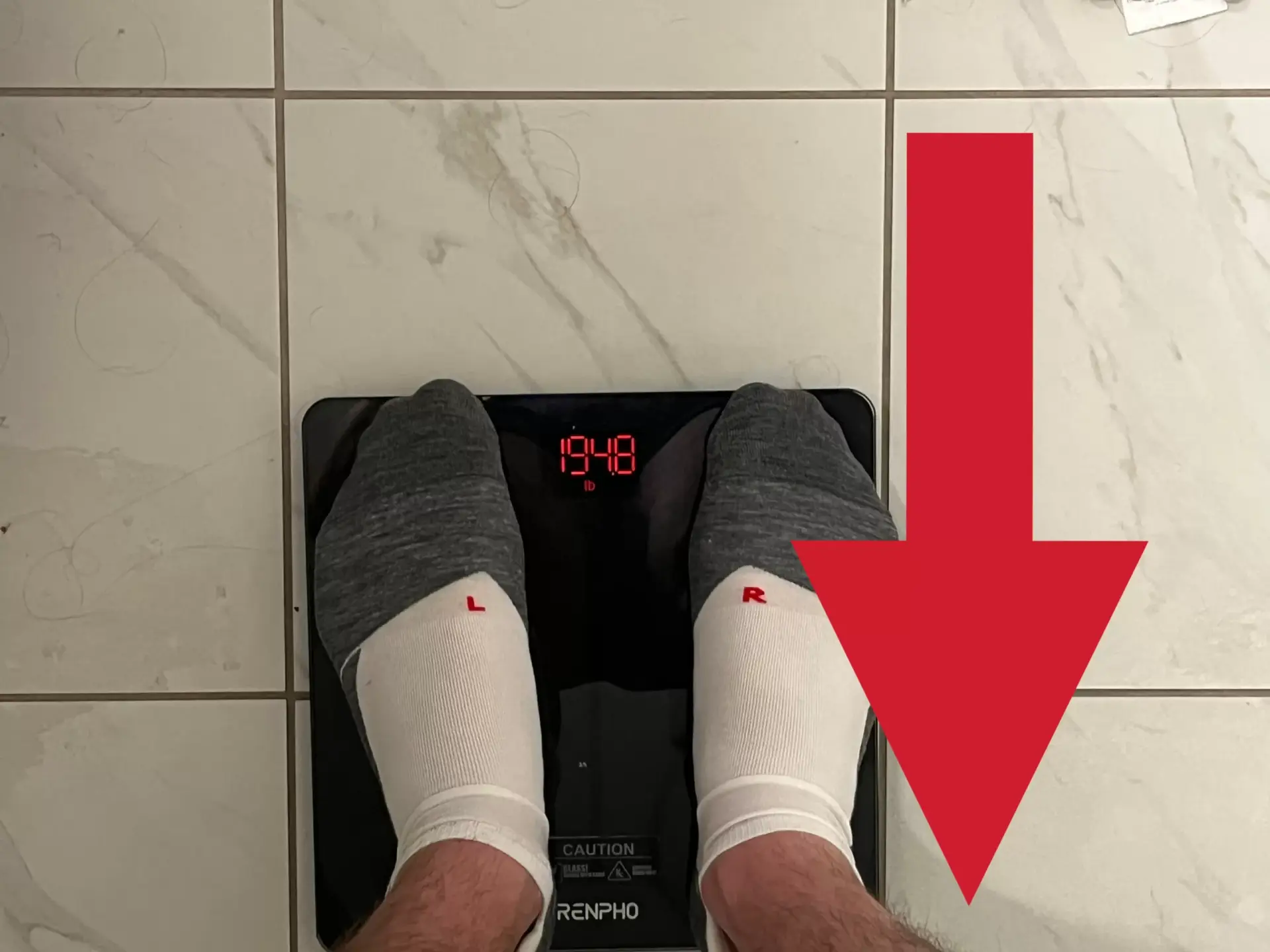
When you stop taking creatine, your body’s creatine levels will gradually return to baseline.
Here’s what might happen during this adjustment period:
1. Loss of Water Weight
One of creatine’s primary functions is pulling water into your muscle cells. This increased water retention is why some people see an initial weight gain when they start taking creatine supplements.
When you stop, this extra water weight will drop off, which can result in slight weight loss—typically 2-5 pounds. However, this doesn’t mean you’re actually losing muscle mass, as the weight loss is primarily due to reduced intracellular water retention.
The Journal of the International Society of Sports Nutrition has shown that while water content may normalize, the muscle’s structural integrity remains unaffected.
2. Decreased Workout Energy
After stopping supplementation, your muscles’ creatine levels gradually deplete over 4–6 weeks (Kreider & Stout, 2021). During this time, you might notice a slight reduction in workout intensity or power output, particularly during high-intensity activities.
This drop-off can hinder your ability to push through extra reps or train at your peak. It might just take some getting used to when you’re coming down from the levels of energy you have had during a long period of supplementing with creatine.
3. No More “Creatine Gains”
The extra energy and retention of water provided by creatine supplementation contribute to temporary muscle fullness and improved performance.
When you stop taking creatine, this benefit fades, but it doesn’t mean you lose muscle overnight. Your actual muscle mass remains intact as long as you maintain strength training and proper nutrition.
So don’t worry, if you keep at it in the gym and keep eating right, with proper macronutrient intake, you can still have a lot of muscle without the extra creatine.
Are Creatine Gains Permanent?
Do creatine gains last forever? The answer depends on what you define as “gains.” The water weight and slight increase in size caused by water retention are temporary. When you stop creatine supplementation, those will go away.
However, muscle growth and strength gains achieved through consistent strength training and supplementing with creatine are not automatically lost.
Research by The Journal of Aging and Physical Activity supports what I previously mentioned, that you can maintain gains in strength and lean tissue mass after stopping creatine, as long as resistance training continues. This just shows the importance of training consistency in maintaining progress.
Creatine is just a tool that helps you build muscle faster, but the gains themselves come from your effort in the gym. You should never rely on supplementation.
Long-Term Effects of Stopping Creatine Supplementation
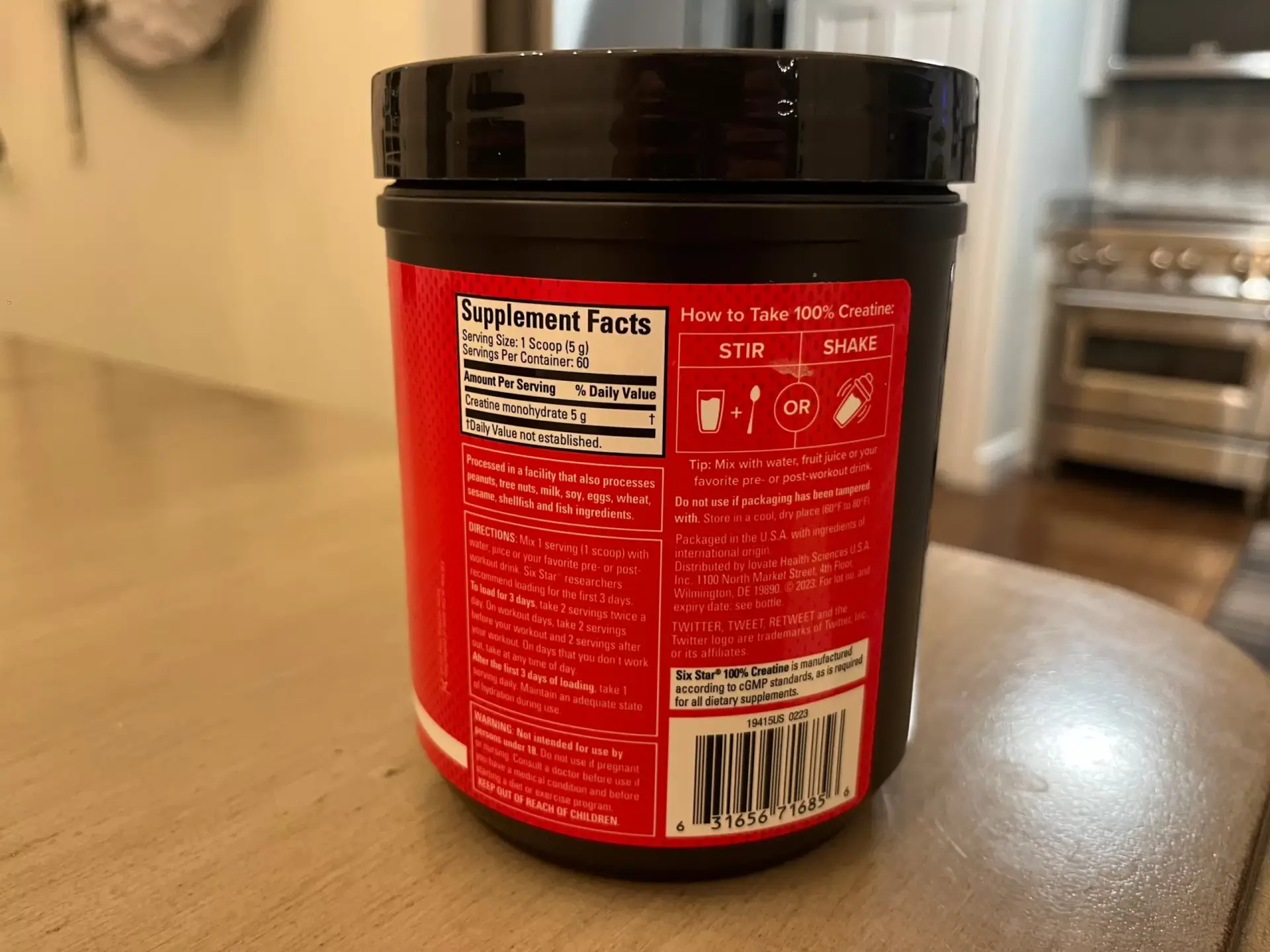
While the immediate effects of stopping creatine can be noticeable, there are also long-term considerations:
1. Muscle Strength and Size
Without creatine supplementation, your muscles might not recover as quickly, and your energy during intense exercise may drop slightly. This could make it harder to hit the same workout intensity or maintain the same level of muscle growth over time.
For older individuals, stopping creatine supplementation may lead to faster declines in muscle mass and strength. Kreider and Stout (2021) note that creatine supplementation plays a critical role in combating age-related muscle loss, particularly when combined with resistance training.
For you younger folks, this is less of a worry.
2. Natural Creatine Production
When you take creatine supplements, your body reduces its natural creatine production slightly (Wax et al. (2021)).
However, after stopping creatine, your body’s natural creatine production will return to normal within a few weeks, so you don’t need to worry that supplementation will permanently affect natural synthesis (Antonio et al. (2021)).
3. Muscle Recovery
Creatine supports muscle recovery by boosting energy availability, reducing soreness, and protecting against exercise-induced muscle damage.
It works by increasing phosphocreatine stores, speeding up ATP regeneration, and lowering markers of muscle damage like creatine kinase. Creatine also has anti-inflammatory properties that promote faster recovery (Wax et al., 2021).
When you stop taking creatine, these benefits diminish as creatine levels return to baseline, potentially leading to slower recovery and more soreness. To maintain recovery, focus on hydration, balanced nutrition, and adequate protein intake.
Can You Safely Stop Taking Creatine?
Yes, stopping creatine is completely safe. No long-term adverse effects on clinical health markers have been identified.
According to Frontiers in Nutrition, there’s no “withdrawal” period, and most of the changes you experience are related to water retention and energy availability.
Creatine has been proven over decades of research to be one of the safest supplements you can take, and that goes for the large majority of individuals. So it makes sense that you can safely stop taking it as well, because it is not bringing upon any risk originally in terms of your overall health and wellness.
If you want to minimize any potential drop in performance, consider phasing it out gradually instead of stopping cold turkey. Slowly lower your daily dosage until you get to zero.
Alternatives to Creatine for Muscle Growth
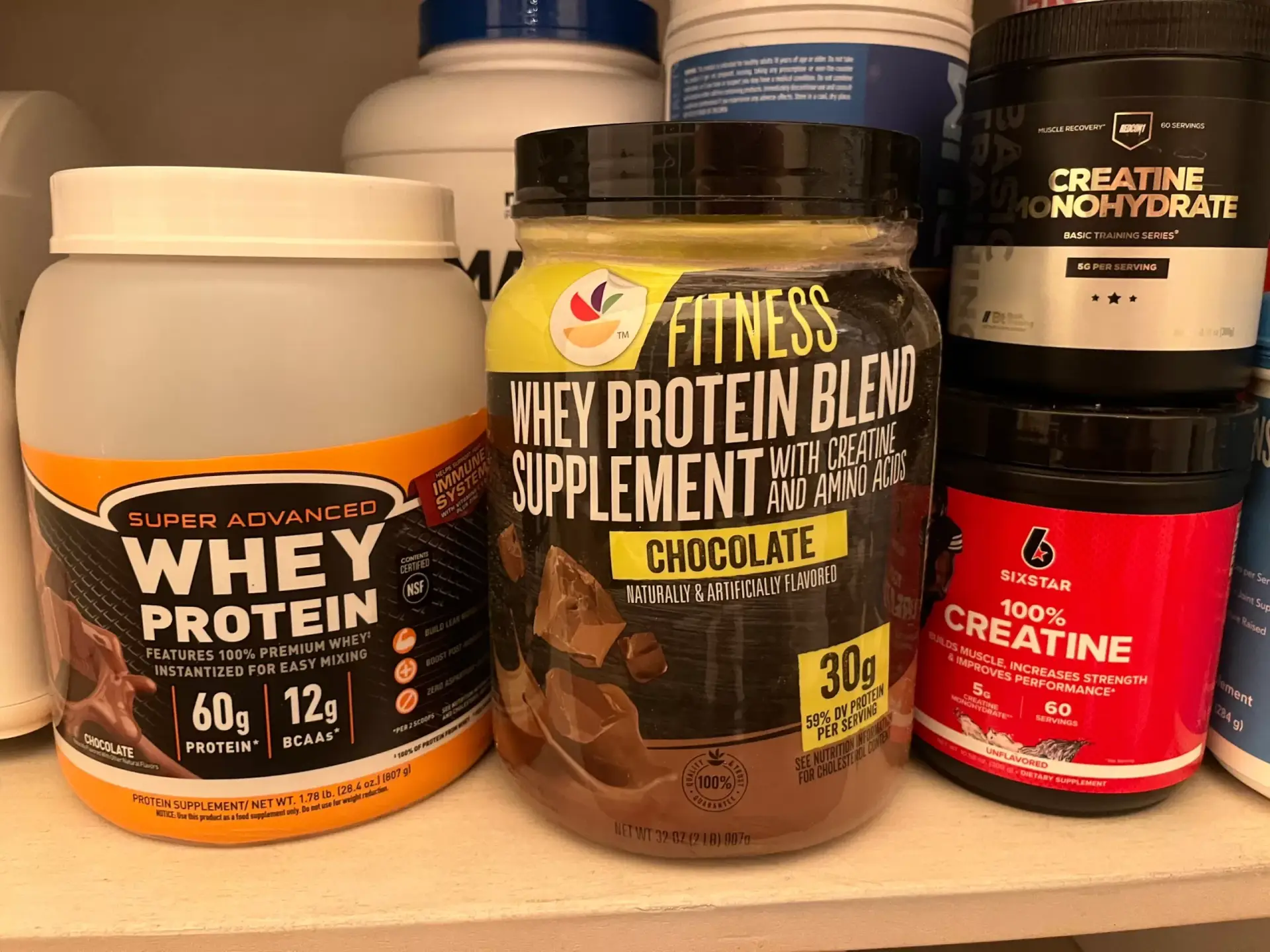
If you decide to stop taking creatine but still want to maintain your progress, there are other strategies and supplements to explore:
- Protein Supplements: Protein is essential for building muscle and aiding recovery. A high-quality protein supplement can help you meet your daily protein requirements, which is critical for muscle repair and growth. The Translational and Clinical Pharmacology shows that protein supplementation can increase skeletal muscle mass, improve body composition, and support recovery after workouts (Ambulkar et al., 2023).
- Beta-Alanine: This amino acid can improve endurance and high-intensity performance. Hobson et al., 2012 have shown that beta-alanine supplementation is very effective for activities such as high-intensity intervals lifting, sprinting, or rowing. Studies show a ~3% improvement in exercise outcomes, and for sustained supplementation, athletes can see significant gains in endurance capacity. Beta-alanine can still help delay fatigue and enhance overall performance.
- Citrulline Malate: According to the European Journal of Applied Physiology, Citrulline malate could be great for improving blood flow and reducing muscle fatigue. It may offer modest improvements in endurance and strength performance, primarily in resistance training.
- Dietary Sources of Creatine: Dietary creatine is very important for individuals who do not synthesize enough creatine naturally or who have limited dietary intake from animal products. It plays a huge role in liver health, gut barrier function, and general energy metabolism. Consuming foods like red meat, fish, and pork can help you get creatine in your system without supplementing with creatine (Brosnan & Brosnan, 2016).
Frequently Asked Questions
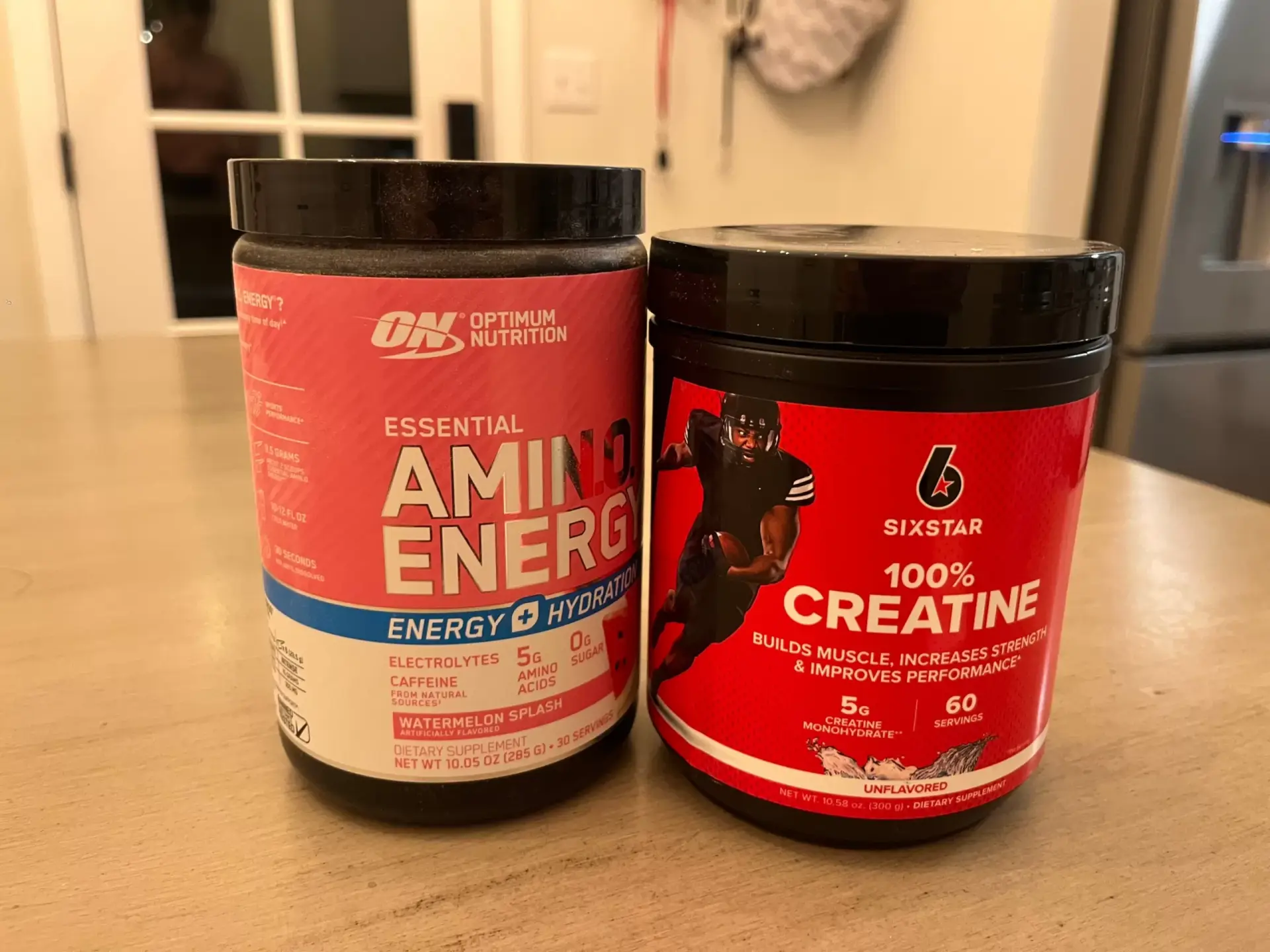
1. Can You Restart Creatine After Stopping?
Yes! You can start supplementing with creatine again anytime. Just like when you first began, you might go through a loading phase to saturate your creatine stores quickly.
2. Does Stopping Creatine Affect Other Supplements?
No, creatine works independently of other supplements like protein powder or pre-workouts. Stopping it won’t impact the effectiveness of other products.
3. How Long Does It Take for Creatine to Leave Your System?
After stopping, your body will return to baseline creatine levels within 4-6 weeks, depending on your activity level and diet. Read our whole guide on how long creatine stays in your system for more on this topic.
4. Will You Lose Muscle When You Stop Taking Creatine?
Muscle mass won’t be lost if you maintain a structured training routine and proper diet. Any perceived muscle loss is likely due to reduced water retention.
How to Maintain Progress After Stopping Creatine
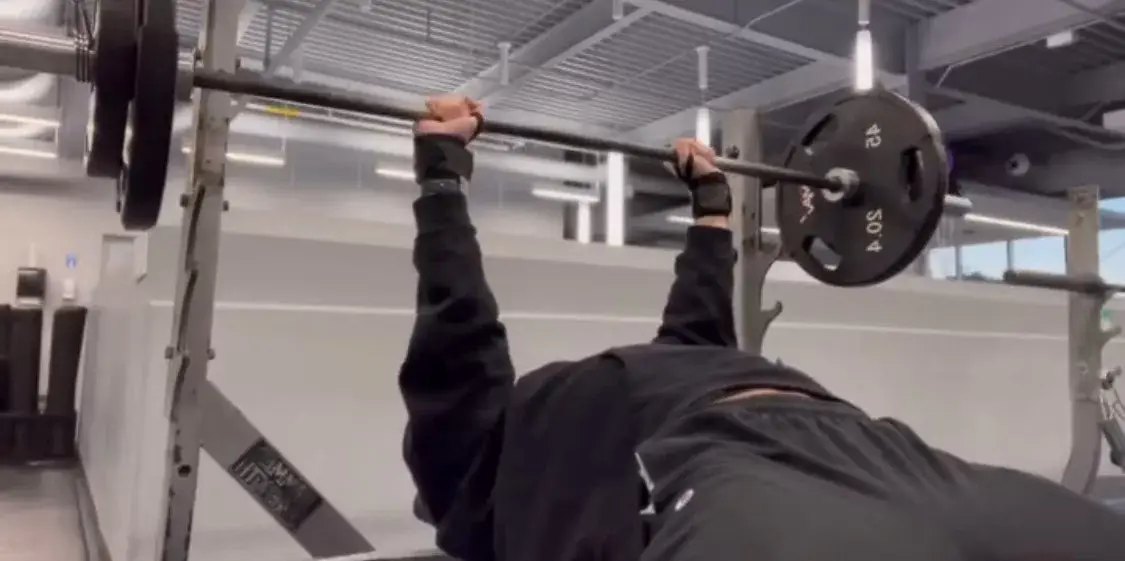
If you’re worried about losing progress after ceasing creatine supplementation, here are some tips to stay on track:
- Stick to Resistance Training: Continuing a structured resistance training program is the most important thing for maintaining your progress. Candow et al. (2004) found that consistent training prevents strength and muscle loss after stopping creatine supplementation.
- Prioritize Proper Nutrition: Eat enough protein, carbs, and healthy fats to fuel muscle growth.
- Stay Hydrated: Creatine helps with water retention, so drink plenty of water to keep your muscles hydrated.
- Track Your Workouts: Monitor your performance to ensure you’re maintaining or improving over time.
Conclusion
Stopping creatine supplementation isn’t as dramatic as it might seem. While you may experience some changes—like losing water weight and a slight decrease in workout intensity—these effects are temporary and manageable.
As long as you stick to your resistance training program, eat well, and recover properly, you will maintain your muscle gains and continue crushing your fitness goals.
Whether you’re taking creatine, thinking about stopping it, or considering starting it again, remember that progress in the gym is about consistency, effort, and a little patience. Creatine is just one tool in your toolbox.
Related articles on creatine: Does Creatine Have Caffeine?, Can You Mix Creatine with Protein Powder?, Can You Dry Scoop Creatine?, How Long Does Creatine Stay in Your System? Does Creatine Expire?
References
- Staff, Mayo. Clinic. (2023, December 13). Creatine. https://www.mayoclinic.org/drugs-supplements-creatine/art-20347591
- Candow DG, Chilibeck PD, Chad KE, Chrusch MJ, Davison KS, Burke DG. Effect of ceasing creatine supplementation while maintaining resistance training in older men. J Aging Phys Act. 2004 Jul;12(3):219-31. doi: 10.1123/japa.12.3.219. PMID: 15263100.
- Antonio, J., Candow, D. G., Forbes, S. C., Gualano, B., Jagim, A. R., Kreider, R. B., Rawson, E. S., Smith-Ryan, A. E., VanDusseldorp, T. A., Willoughby, D. S., & Ziegenfuss, T. N. (2021). Common questions and misconceptions about creatine supplementation: What does the scientific evidence really show? Journal of the International Society of Sports Nutrition, 18(1), 13. https://doi.org/10.1186/s12970-021-00401-3
- Kreider RB, Stout JR. Creatine in Health and Disease. Nutrients. 2021 Jan 29;13(2):447. doi: 10.3390/nu13020447. PMID: 33572884; PMCID: PMC7910963.
- Wax B, Kerksick CM, Jagim AR, Mayo JJ, Lyons BC, Kreider RB. Creatine for Exercise and Sports Performance, with Recovery Considerations for Healthy Populations. Nutrients. 2021 Jun 2;13(6):1915. doi: 10.3390/nu13061915. PMID: 34199588; PMCID: PMC8228369.
- Jagim AR, Stecker RA, Harty PS, Erickson JL, Kerksick CM. Safety of Creatine Supplementation in Active Adolescents and Youth: A Brief Review. Front Nutr. 2018 Nov 28;5:115. doi: 10.3389/fnut.2018.00115. PMID: 30547033; PMCID: PMC6279854.
- Fazio C, Elder CL, Harris MM. Efficacy of Alternative Forms of Creatine Supplementation on Improving Performance and Body Composition in Healthy Subjects: A Systematic Review. J Strength Cond Res. 2022 Sep 1;36(9):2663-2670. doi: 10.1519/JSC.0000000000003873. Epub 2021 Feb 11. PMID: 36000773.
- Ambulkar P, Hande P, Tambe B, Vaidya VG, Naik N, Agarwal R, Ganu G. Efficacy and safety assessment of protein supplement – micronutrient fortification in promoting health and wellbeing in healthy adults – a randomized placebo-controlled trial. Transl Clin Pharmacol. 2023 Mar;31(1):13-27. doi: 10.12793/tcp.2023.31.e1. Epub 2023 Mar 2. PMID: 37034123; PMCID: PMC10079511.
- Hobson RM, Saunders B, Ball G, Harris RC, Sale C. Effects of β-alanine supplementation on exercise performance: a meta-analysis. Amino Acids. 2012 Jul;43(1):25-37. doi: 10.1007/s00726-011-1200-z. Epub 2012 Jan 24. PMID: 22270875; PMCID: PMC3374095.
- Gough LA, Sparks SA, McNaughton LR, Higgins MF, Newbury JW, Trexler E, Faghy MA, Bridge CA. A critical review of citrulline malate supplementation and exercise performance. Eur J Appl Physiol. 2021 Dec;121(12):3283-3295. doi: 10.1007/s00421-021-04774-6. Epub 2021 Aug 21. PMID: 34417881; PMCID: PMC8571142.
- Brosnan ME, Brosnan JT. The role of dietary creatine. Amino Acids. 2016 Aug;48(8):1785-91. doi: 10.1007/s00726-016-2188-1. Epub 2016 Feb 13. PMID: 26874700.
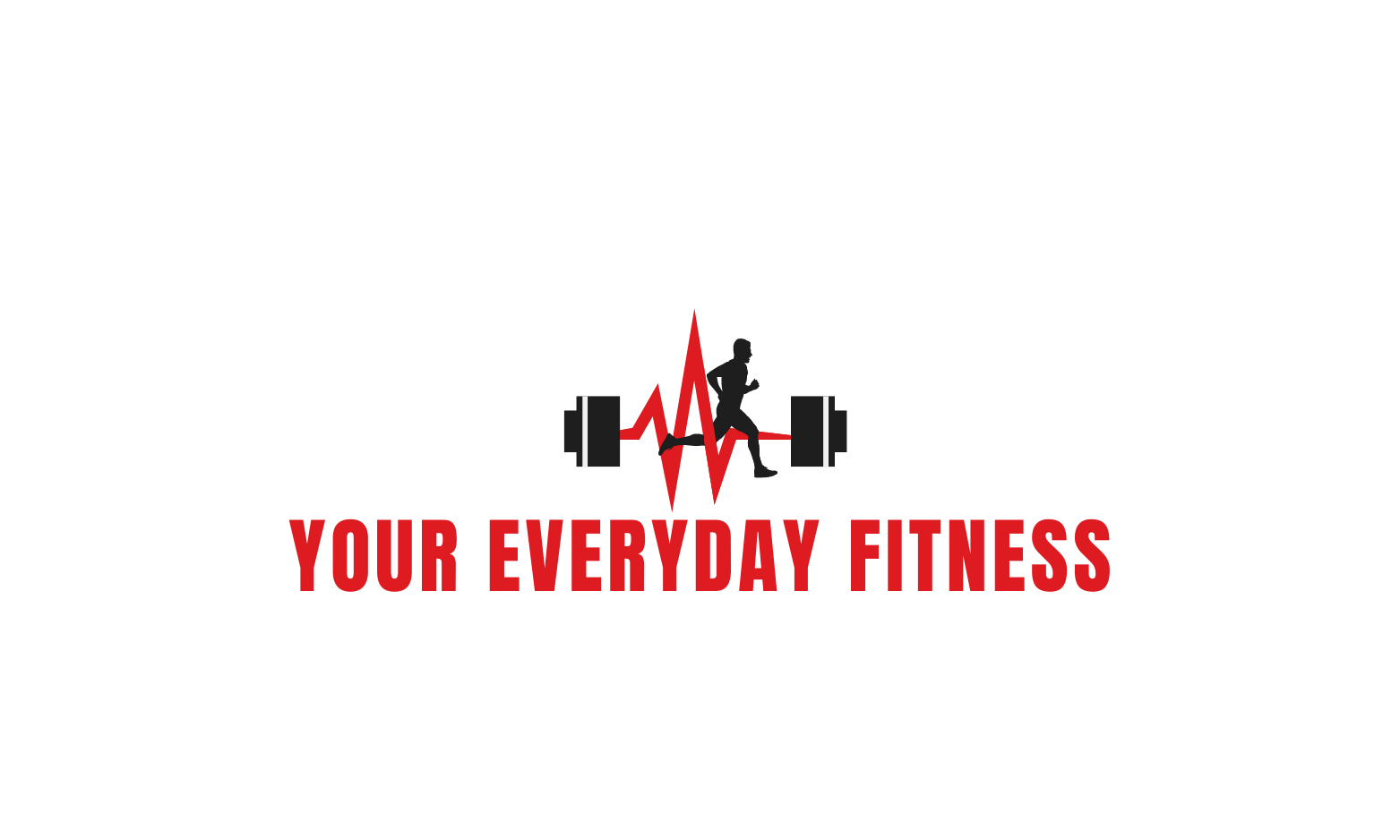
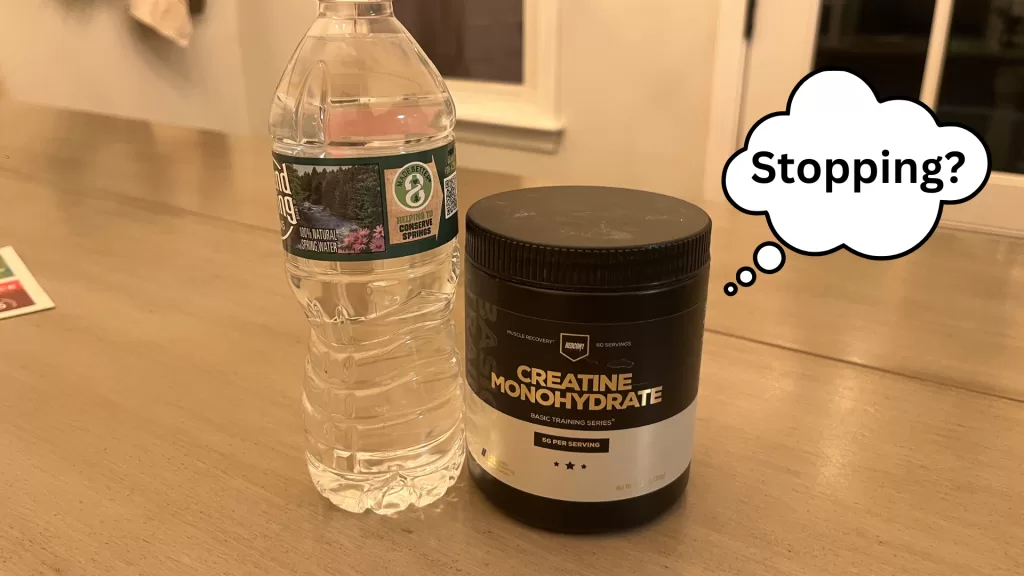




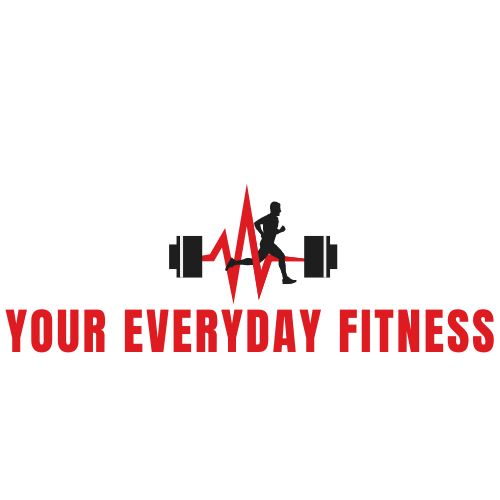






 Ever wondered how to build arms like Arnold?
Ever wondered how to build arms like Arnold? 
 Ready to build massive legs like the legend h
Ready to build massive legs like the legend h